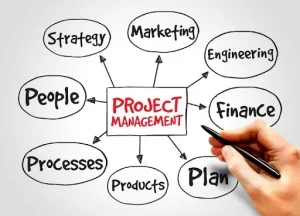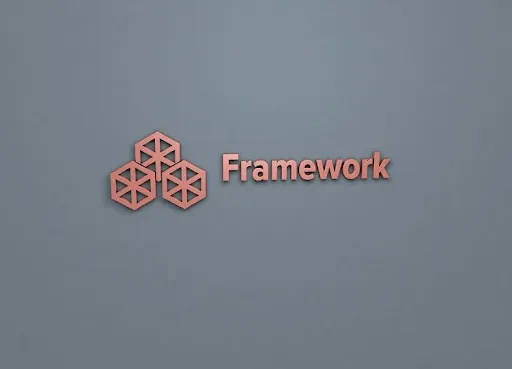As the global business landscape grows increasingly competitive, successful project management has become essential for any organisation hoping to stay ahead of the curve. Project management frameworks typically will be organized so that team members can easily access project resources and track progress. Like a recipe for success, project management frameworks are essential for any successful venture. PMP frameworks allow project managers to plan, execute, and finalize projects within stipulated deadlines and budgets.
These frameworks involve carefully considering resources, tasks and processes to achieve desired outcomes. Regardless of the size or complexity of the project, the PMP framework ensures that work is organized according to set goals and established plans. With PMP, project managers can efficiently monitor progress, identify risks, and control budget expenditures and team performance. Overall, the PMP framework allows for more efficient operations resulting in the timely delivery of high-quality results. This blog post explores what a PMP framework is and how it can be used to maximize success. So, let’s get into it.
Table of Contents
What is a Project Management Framework?

Project management framework is a complex concept that has been, and continues to be, incredibly useful for businesses of all shapes and sizes. The underlying structure and principles help you plan, execute, control, and close any project or business initiative with the end goal of success in mind.
Essentially, it gives you the accuracy and quality management skills necessary for keeping projects running smoothly on a day-to-day basis by helping identify risks ahead of time and controlling costs as you go along, not to mention helping avoid scope creep with clear objectives in sight. Whether simple or complex, Project Management Framework is vital to ensure accurate business results.
How to Use Project Management Framework?
Project management frameworks are incredibly versatile and can be tailored to the unique needs of any given project or initiative. An excellent place to start is by breaking each stage into manageable chunks and assigning tasks accordingly, with precise deadlines and deliverables in mind. It’s also essential to establish an effective communication system from the outset and ensure that everyone on your team knows how the framework works. Some other standard practices include
Identifying Resources Needed for The Project
If you want to make a project successful, it’s critical to identify the types of resources you’ll need. If your team is searching for how to make a wallpaper app a project management framework can help you. By utilizing the framework, you can plan how best to employ the available resources, budget them accordingly and even determine how the timeframe will be met.
With the proper project management tools in place, you’ll be equipped with a practical roadmap from start to finish that allows everyone involved in the project to stay on target. When you identify the resources needed for a project, it’s also essential to consider their availability.
Establishing a Risk Management Plan
Creating a risk management plan using project management frameworks is essential for any project. It allows you to determine the likelihood of potential risks and set out goals that can be used to reduce those risks. The framework aids in adequately identifying, assessing, and resolving troubles while helping create a comprehensive plan that can be modified during the process to ensure a project’s success.
By consistently monitoring potential threats and regularly adapting your schedule to fit the current situation, you are well on your way to providing your project will finish on time and stay within budget.
Creating an Appropriate Budget
Managing a project requires the planning, monitoring, and control of time, cost and resources to bring it to a successful completion. Creating an effective and appropriate budget is one of the foundations of any sound project management framework. This involves forecasting potential expenses and devising comparison points for measuring actual costs against planned ones.
It also allows you to identify areas where cost-cutting can occur from the beginning, something that all stakeholders should be on board with. With a reasonable budget, you will have more room for manoeuvring when unexpected costs arise during the project’s execution. Simply put, having an accurate budget is essential for realizing the competitive advantages of your business enhancement initiative without breaking the bank.
Sharing Progress Reports With Stakeholders
Keeping stakeholders updated on a project’s progress is essential for successful project management. However, with all the other tasks required of a project manager, finding the time to report progress diligently can be challenging. That’s why intelligent project managers use a framework to streamline the process.
A project management framework breaks up the reporting into smaller chunks so that you can present information concisely and efficiently that still captures all the details your stakeholders need to know. By breaking down and automating mundane reports, you’ll regain precious hours, freeing up more time for those critical decisions only you can make.
Analyzing Data to o Improve Performance
Effective project management requires regular analysis of performance data. When implemented correctly, a project management framework can help you gain insight into how tasks and projects are progressing, enabling you to make adjustments on an ongoing basis that result in improved efficiency and better outcomes.
By developing benchmarks for monitoring performance, individual task timelines, and overall project progress, you can identify areas where extra effort is required and take proactive steps to address issues before they become roadblocks. With an information-rich view of your project’s evolution and impact, you can confidently adjust your strategy according to the trends that emerge from your data analysis.








